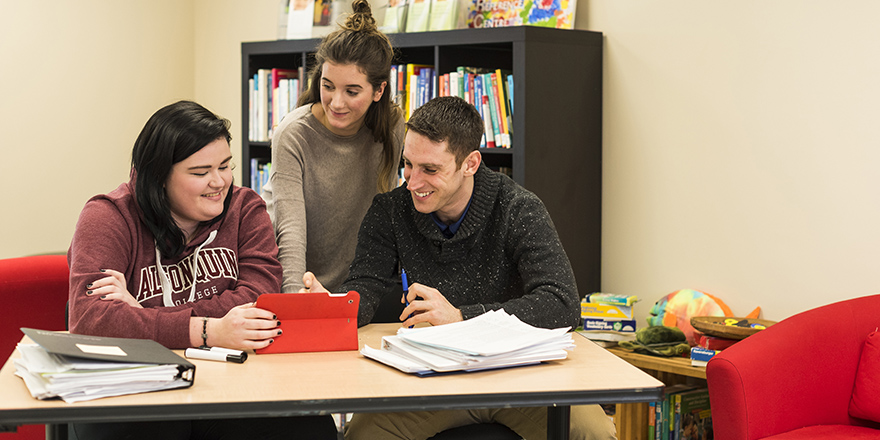Gaining Wisdom for Your Career
Learning about yourself and getting good advice - is essential in career planning.

You’ve probably heard the phrase “Know thyself.” It is attributed to the ancient Greek philosopher Socrates, who thought self-knowledge was the key to gaining wise.
True enough, no doubt, but you don’t need to be a philosopher to benefit from the idea. Self-knowledge knowledge is also essential when it comes to choosing your career.
Career planning is a tricky business, and undoubtedly stressful, especially consider the unknowns. Like, how do you know what you want for a career when you’ve had little, in any, experience in the work-a-day world? How do you know where your true interests or values lie, and, equally important, what untapped talents you might possesses?
Algonquin College’s Student Support Services can help with these questions. There you’ll find resources to assist with career planning along with help figuring out which of Algonquin’s 250+ programs might suit your career inclinations. You’ll also find an online Career Key Discovery tool to help prospective students match career interests and College programs.
“Creating a career isn’t a choice; it’s a series of thousands of choices made throughout your education and work life,” says Jeff Agate, Support Services’ Associate Director. “Career counselling can help you to chart a career direction that makes those choices a little clearer.”
Perhaps the first important bit of advice you’ll get is on the need for an honest self-assessment – asking yourself about your skills, values, and motives as well as your strengths and weaknesses and likes and dislikes.
“One of the core components of career planning is understanding who you are as a person and which types of work environments suit your values, interests and skills,” says Agate
Here, again, the Support Services can assist you - in person and online - in learning to know yourself. For example, career coaching can help you identify areas of interest, skill sets, and personal motivations. You’ll also find out about the current “hot” jobs.
For example, one question to ask yourself is regarding your “values.” What things are important to you in your job and career? The list can be endless, of course – anything from job security, money and status to creativity, helping others, and independence.
Another crucial aspect of self-knowledge is knowing what skills you want to bring to a potential career. Do you like working with tools and machines? Are you the one people turn to for initiating new ideas? Do you love deep-dive research? Are you good at organizing people as well as data? Are you the imaginative type? Are you diplomatic and tactful?
How you answer these and other skills-related questions can help narrow the type of career suitable to you. Again, Student Support Services can assist you in sorting out your skill-orientation.
It’s also important to know what you don’t want in a career – your non-negotiables, as it were.
Are there places you wouldn’t want to live? Do you dislike being stuck inside every day? Can you work with large numbers of people or not? Do you not want to be taking work home at night? How do you feel about travel, commuting, working weekends, shift-work, dangerous work?
In responding to these and other questions you might talk to a trustworthy, but unbiased acquaintance. If they suggest a possible career based on their knowledge of you, make sure to ask on what they’re basing that recommendation. Part of learning about yourself is knowing how others see you.
Finally, a final bit of advice from Support Services: Don’t be in a rush. Career planning takes place over your entire life. So does acquiring wisdom about yourself.
